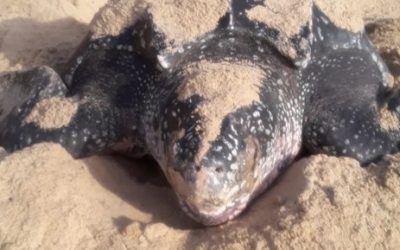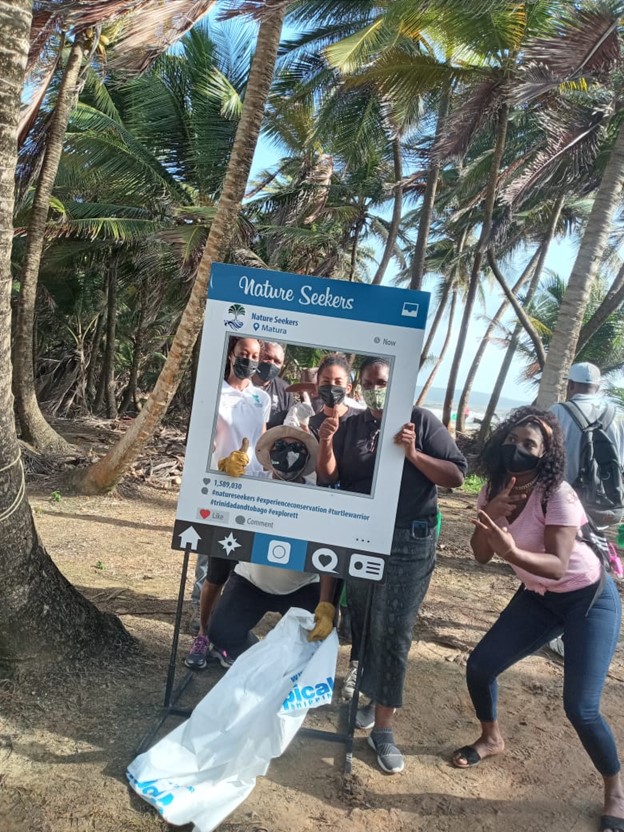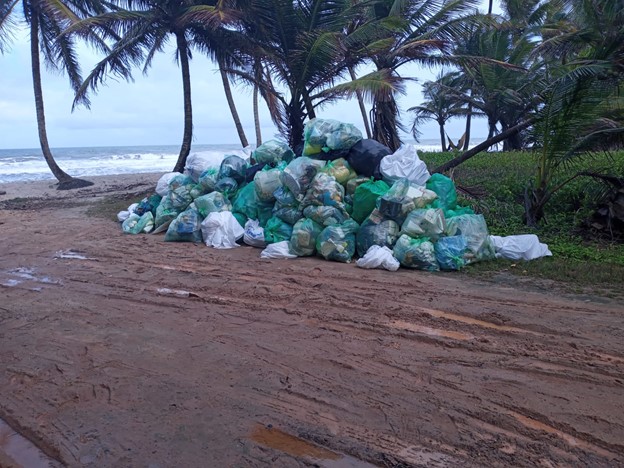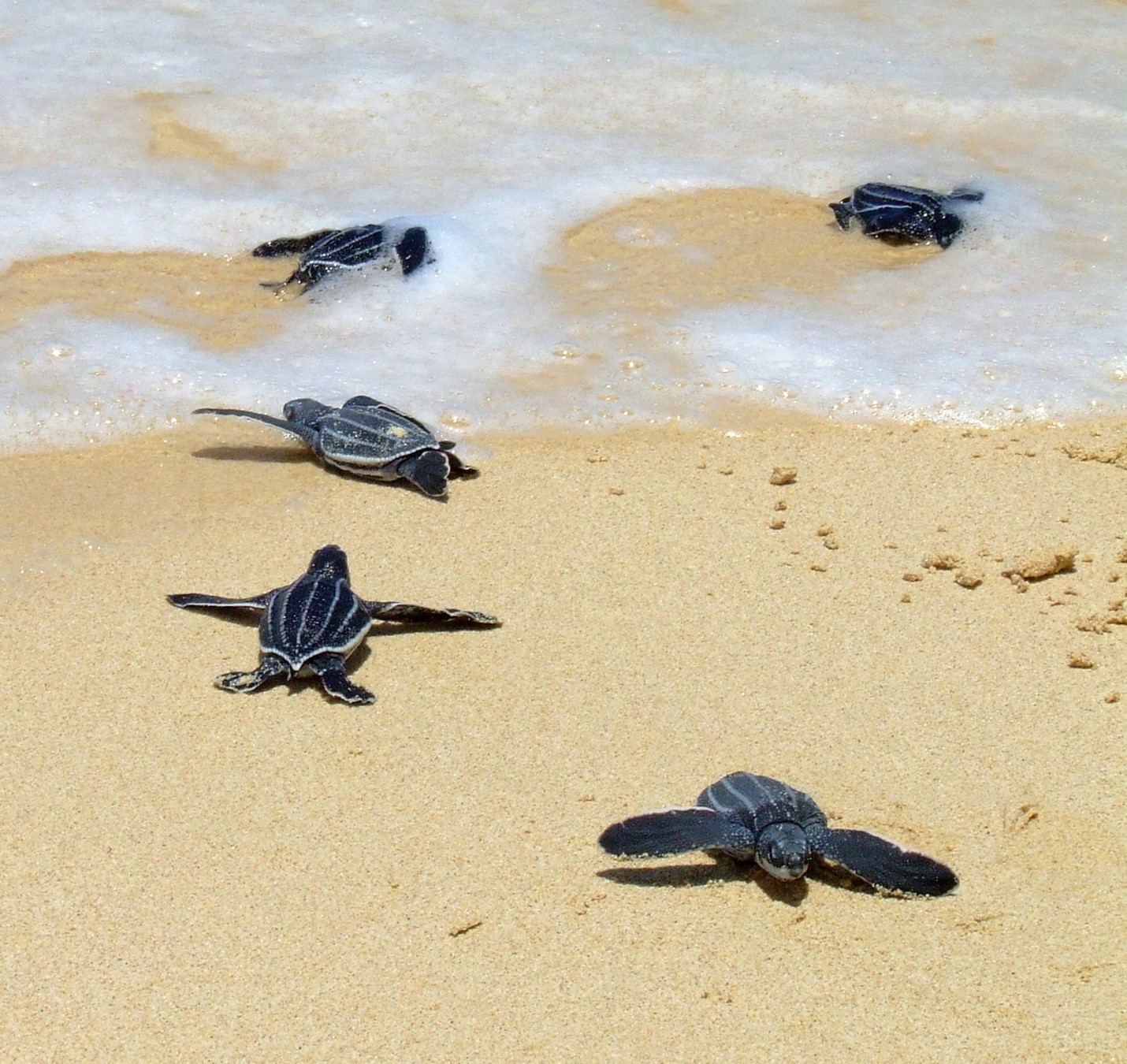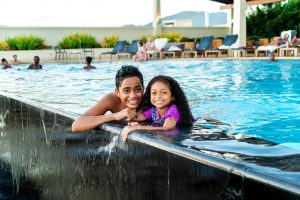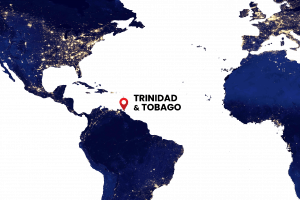Each year, Leatherback Turtles continuously return to our shores, making Destination Trinidad one of the top nesting sites in the world for Leatherback Turtles. For World Sea Turtle Day, we chatted with the staff of Nature Seekers including Managing Director, Suzan Lakhan-Baptiste, to learn more about their conservation efforts and the importance of sea turtles in our ecosystems.
Why are sea turtles important to our ecosystem?
Sea Turtles even at diminished population levels play a very important role in ocean ecosystems by maintaining healthy seagrass beds and coral reefs, providing key habitats for other marine life, helping to balance marine food webs and facilitating nutrient cycling from water to land. Sea turtles also have a positive influence out of the water. Nesting sea turtles help beaches by depositing their eggs in the sand. Eggshells and unhatched eggs left behind provide important nutrients that nourish dune vegetation such as beach grasses, which stabilize dunes and help to prevent coastal erosion.
How has the conservation efforts led by Nature Seekers, encouraged leatherback turtles to continuously return year after year, making Trinidad and Tobago one of the top nesting sites in the world for leatherback turtles?
This is made possible by Nature Seekers and ALL the individuals and organizations that participate in Turtle Conservation. They all work tirelessly to ensure poaching is significantly reduced every year so that Leatherbacks Turtles have a safe environment to return to when the nesting season comes around.
What has Nature Seekers learned about sea turtles through the use of flipper tags?
Flipper and PIT tags are used to identify individual turtles to help researchers learn things like nesting site fidelity, the number of nests laid during a nesting season, the number of years between nesting seasons, and growth rates. In addition, these tags can be used to identify where a captured or stranded turtle was originally tagged, which can be used to establish possible migration pathways. While flipper and PIT tags can provide starting and ending points for migration, satellite tags are able to provide research and conservationists with the actual routes that sea turtles take between different habitats.
What are some ways people can help protect endangered leatherback turtles?
- Reduce marine debris that may entangle or be accidentally eaten by sea turtles.
- Participate in coastal clean-ups and reduce plastic use to keep our beaches and ocean clean. Trash in the ocean can harm sea turtles and other creatures that live there.
- Carry reusable water bottles and shopping bags. Refrain from releasing balloons, as they’ll likely end up in the ocean where sea turtles can mistake them for prey and consume them.
- Keep nesting beaches dark and safe for sea turtles. Turn off, shield, or redirect lights visible from the beach. Lights disorient hatchling sea turtles and discourage nesting females from coming onto the beach to lay their eggs.
- Do not disturb nesting turtles, nests, or hatchlings. Attend organized sea turtle watches that know how to safely observe nesting sea turtles.
- Remove recreational beach equipment like chairs, umbrellas, boats at night so sea turtles are not turned away.
- Fill in holes and knock down sandcastles before you leave the beach. They can become obstacles for nesting turtles or emerging hatchlings.
How can tourists participate in, and support the conservation efforts by Nature Seekers for future nesting seasons in Trinidad?
Tourists can support Nature Seekers in the following ways:
- Conservation through experience.
- Participate in Beach Clean-Up Projects.
- Help raise funds to ensure Turtle Conservation lives on.
- Participate in Turtle Watching tours.
- Participate in Educational tours.
- Refrain from purchasing turtle products.
Get in touch with Nature Seekers!
Nature Seekers
10 1/4 Mile Mark Toco Main Road, Matura, Trinidad W.I.
Tel: 1 (868) 668-7337
Tel: 1 (868) 223-5713
Fax: 1 (868) 668-7337
- Chairman > Kyle Mitchell: Contact – 1 (868) 768-3273
- Managing Director > Suzan Lakhan Baptiste: Contact – 1 (868) 398-3038
Find Nature Seekers Online:
- Website: www.natureseekers.org
- Instagram: https://www.instagram.com/natureseekerstt
- Facebook: https://www.facebook.com/NatureSeekers/


